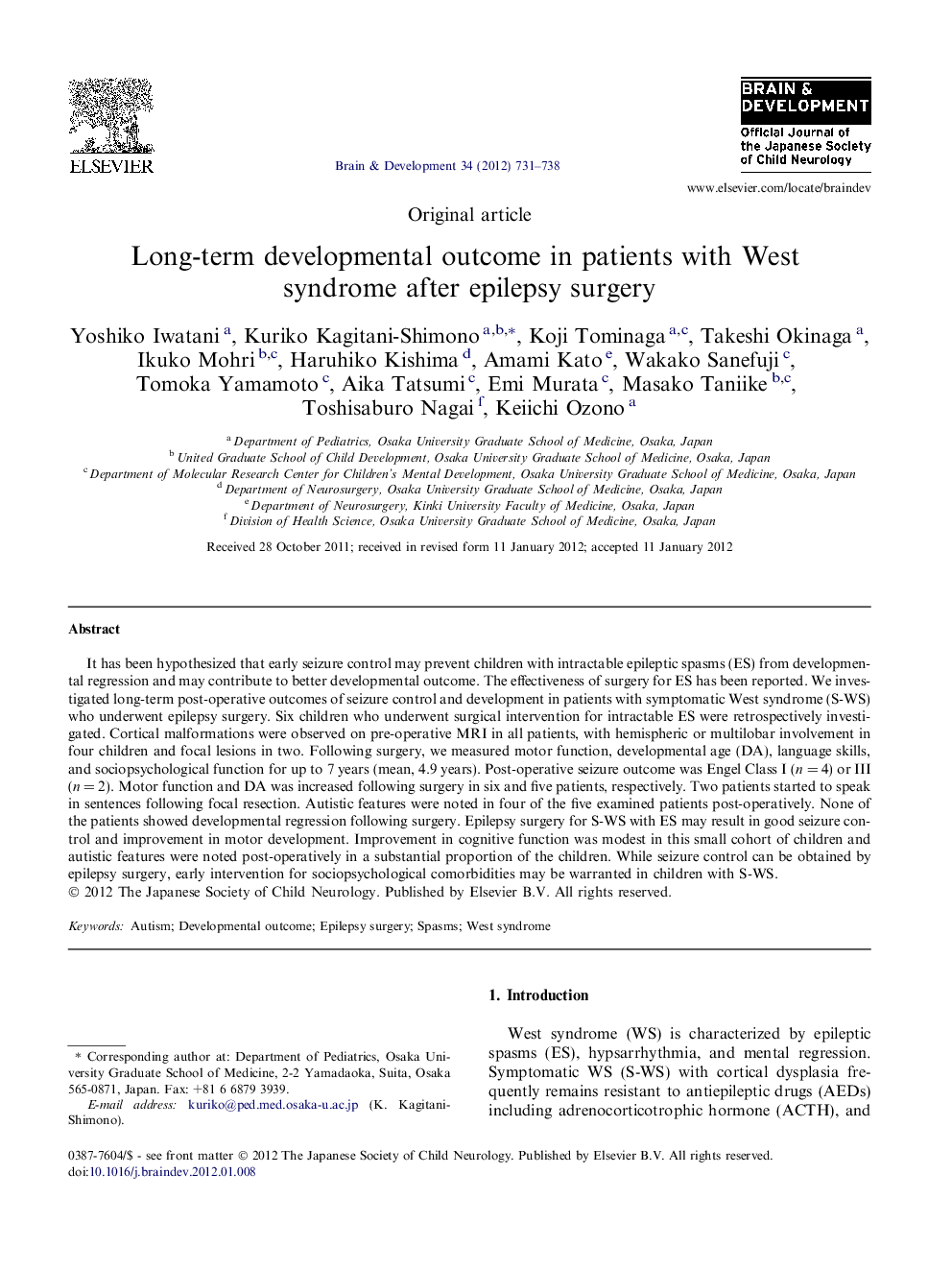| Article ID | Journal | Published Year | Pages | File Type |
|---|---|---|---|---|
| 3037466 | Brain and Development | 2012 | 8 Pages |
It has been hypothesized that early seizure control may prevent children with intractable epileptic spasms (ES) from developmental regression and may contribute to better developmental outcome. The effectiveness of surgery for ES has been reported. We investigated long-term post-operative outcomes of seizure control and development in patients with symptomatic West syndrome (S-WS) who underwent epilepsy surgery. Six children who underwent surgical intervention for intractable ES were retrospectively investigated. Cortical malformations were observed on pre-operative MRI in all patients, with hemispheric or multilobar involvement in four children and focal lesions in two. Following surgery, we measured motor function, developmental age (DA), language skills, and sociopsychological function for up to 7 years (mean, 4.9 years). Post-operative seizure outcome was Engel Class I (n = 4) or III (n = 2). Motor function and DA was increased following surgery in six and five patients, respectively. Two patients started to speak in sentences following focal resection. Autistic features were noted in four of the five examined patients post-operatively. None of the patients showed developmental regression following surgery. Epilepsy surgery for S-WS with ES may result in good seizure control and improvement in motor development. Improvement in cognitive function was modest in this small cohort of children and autistic features were noted post-operatively in a substantial proportion of the children. While seizure control can be obtained by epilepsy surgery, early intervention for sociopsychological comorbidities may be warranted in children with S-WS.
